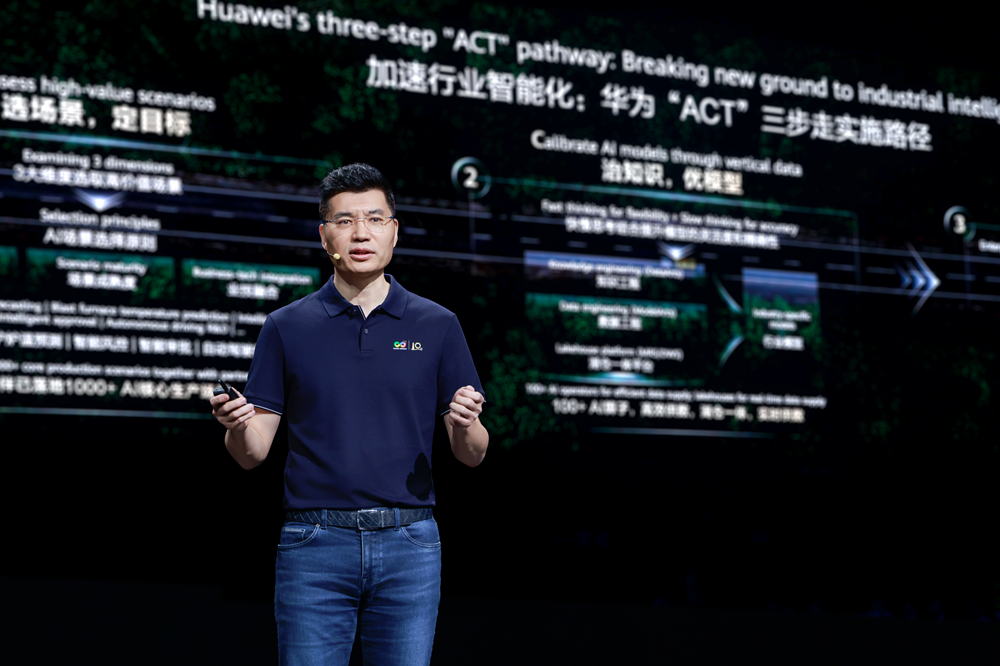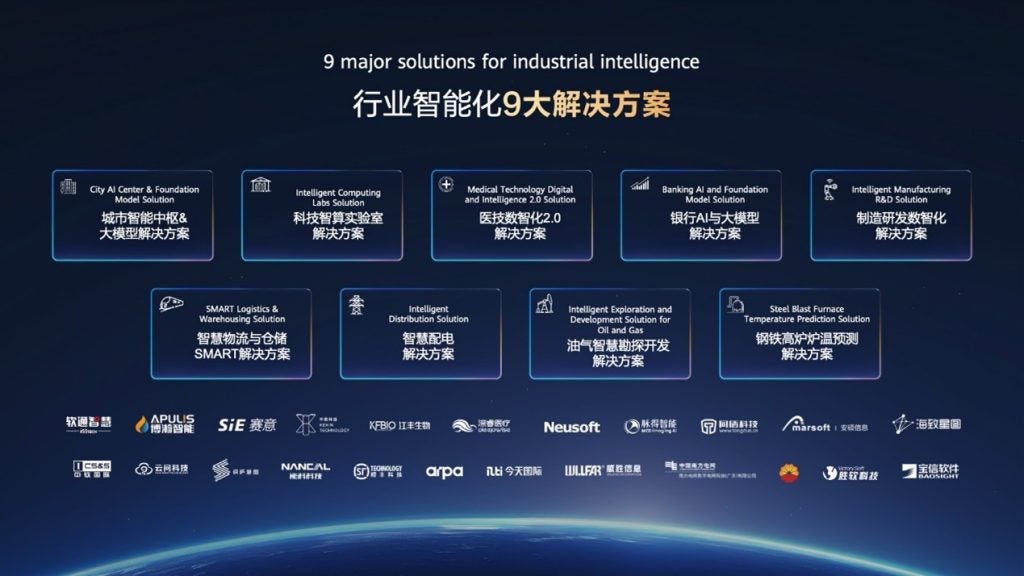
Speaking at HUAWEI CONNECT 2025 in Shanghai, Leo Chen, Senior Vice President and President of Enterprise Sales at Huawei, reminded the audience that AI is advancing faster than ever. “No one is asking why we should use AI,” he said. “The real question is how.”
Taking to the stage for his keynote speech Breaking New Ground to Industrial Intelligence, Chen emphasised that AI is here to stay and will significantly boost industrial efficiency. However, he says, there are three major questions facing enterprises trying to adopt AI: how to ensure AI investments deliver business value, how to leverage proprietary data for competitive advantage, and how to scale AI use cases beyond pilots.
Chen introduced Huawei’s latest approach to industrial intelligence, the three-step “ACT” pathway – Assess, Calibrate, Transform – designed to guide enterprises through intelligent transformation. This pathway helps enterprises identify high-value AI scenarios, calibrate models with vertical data, and transform operations with scalable AI agents. Huawei also launched nine major solutions for industrial intelligence that it has developed alongside its partners.

“Real knowledge comes from practice,” says Chen, who shared success stories from several different industries:
Case study 1: Intelligent power line inspections with AI
China Southern Power Grid oversees extensive power transmission infrastructure, generating vast amounts of operational data, and wanted to leverage this data to improve the identification of defects in power lines. The primary challenge was to efficiently process and analyse large volumes of data to detect defects in power transmission lines, aiming for higher accuracy and automation.
In collaboration with Huawei, China Southern Power Grid developed “MegaWatt” – a large AI model tailored for the power sector. Built on Ascend computing platform and MindSpore AI framework, MegaWatt integrates computer vision and natural language processing to automate defect detection. The project involved comprehensive data governance, including cleaning, processing, labelling and optimising enterprise data. Huawei’s optimised operators accelerated model training and improved accuracy.
Operating on Ascend’s MoE Expert Parallelism (EP) cluster, designed for high-volume, real-time tasks, this setup increased per-card throughput by 3.3 times compared to traditional solutions and significantly reduced inference latency. Since deployment, MegaWatt has increased defect recognition efficiency by five times, improved accuracy to over 90%, and enabled end-to-end automation from image recognition to report generation.
Case study 2: Transforming medical practice with AI
Accurate and efficient medical recordkeeping is essential for quality patient care. West China Hospital sought to streamline this process to improve both clinical outcomes and staff efficiency and required a solution that could generate high-quality records quickly and accurately, while meeting strict clinical standards.
In partnership with Runda, Huawei developed an AI-powered medical record system based on the Ascend platform, integrating open-source models for general tasks with industry-specific models for clinical language understanding. The system automatically recognises and summarises doctor–patient conversations, interprets diagnoses and generates accurate hospital records.
Deployed at West China Hospital, the system works alongside pre-diagnosis and quality control AI agents to ensure both efficiency and accuracy. Doctors can finalise records with no more than four edits and submit them to the hospital information system (HIS) with a single click. The AI-powered system generates medical records in just one second, significantly improving the efficiency of diagnosis and treatment.
Five key findings for driving industrial intelligence
From these and other projects, Chen explained that Huawei had identified five key findings for successful intelligent transformation:
- Selecting the right implementation scenarios is crucial for realising AI’s value.
- High-quality, industry-specific data is essential for effective AI models.
- The need for large-scale inference is rapidly increasing.
- Human-AI collaboration is emerging as a new organisational model.
- Strong governance and risk management are vital for secure, sustainable AI.
Huawei is supporting enterprises using the ACT pathway and helping them assess high-value AI scenarios, says Chen, while Huawei’s full toolchain and security systems enable the creation of industry-specific models. Its Versatile platform accelerates agent deployment and workflow automation, while the company also invests in AI-oriented ICT infrastructure, such as high-speed networks and advanced storage solutions, to support the entire AI lifecycle.
Additionally, Huawei is building a robust partner ecosystem, now including over 6,300 Kunpeng partners and 2,700 Ascend partners. Huawei’s nine new solutions – launched at the Shanghai event – cover areas like city management, intelligent computing, healthcare, banking, manufacturing, logistics, energy, and steel production and aim to drive the next phase of industrial intelligence.
Chen concluded with this thought: “Our collective response to the changes brought by AI will determine whether it can truly deliver its “last mile” value and transform technology breakthroughs into real-world benefits.”
For more information, visit https://e.huawei.com/en/

